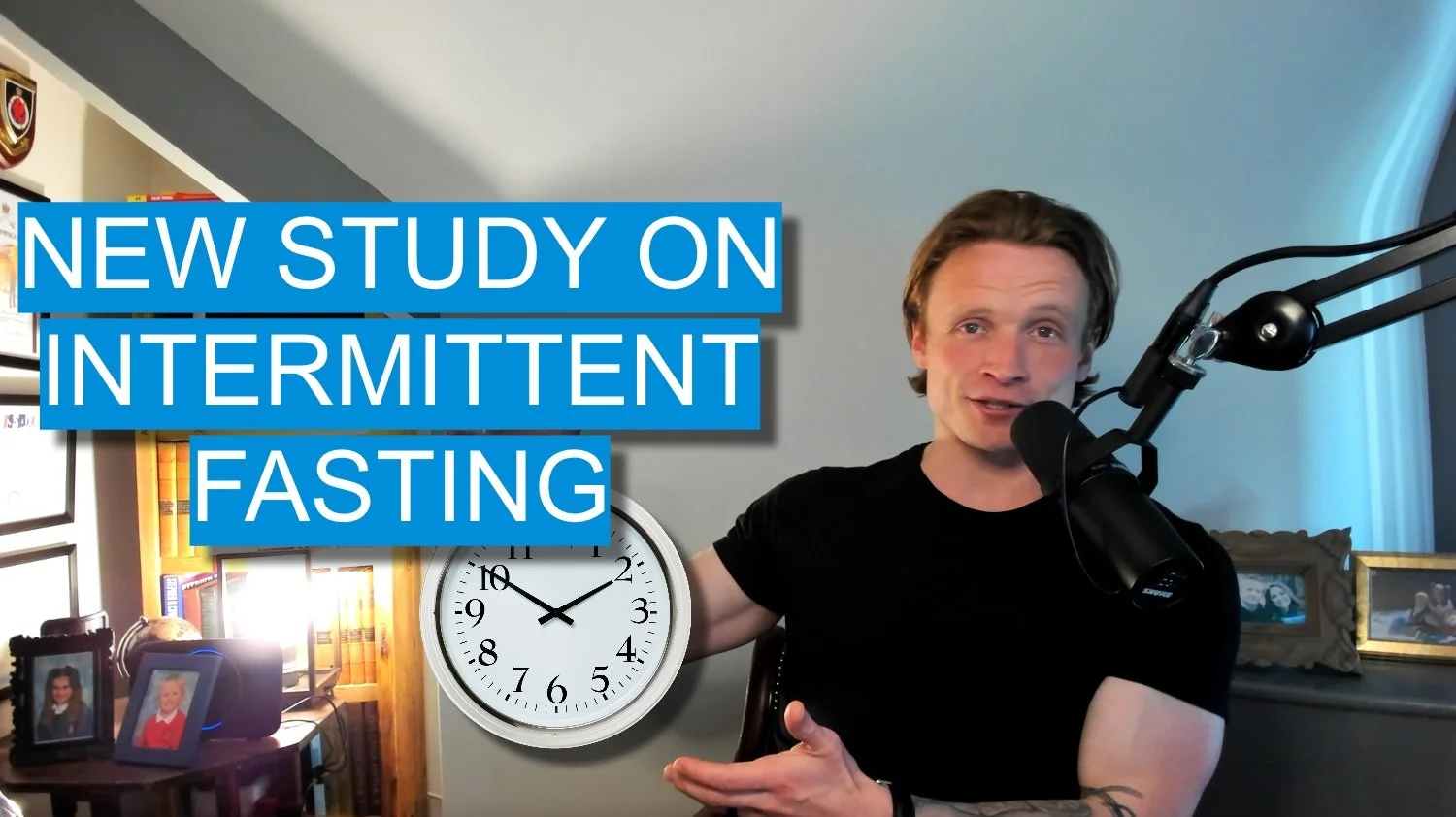New Study on Intermittent Fasting (April 2022)
There's a new study on time-restricted eating (AKA intermittent fasting). It's an interesting study which compares time-restricted eating to calorie restriction alone for weight loss, and as your friendly neighbourhood coach, I'm here to break it down! This study randomly assigned 139 patients with obesity to one of two weight loss interventions. One group did time-restricted eating – only between 8:00 a.m. and 4:00 p.m while also restricting calories, and the other group did daily calorie restriction alone. For a full year, all the participants were instructed to follow a calorie-restricted diet consisting of 1500-1800 kcal per day for men and 1200-1500 kcal per day for women.
Prefer to watch than read? Then please check out the video below:
Results after one year
What was the outcome? Is intermittent fasting better, or will calorie restriction alone suffice?
Those of you who understand physics, specifically thermodynamics, are probably going to think that there’s not going to be a big difference, as the calories are equated for, and you’d be right! After one year, the mean weight loss was −8.0 kg in the time-restriction (intermittent fasting) group and −6.3 kg in the daily-calorie-restriction group. So, both approaches were successful, and the difference between the two isn't statistically significant. Intermittent fasting was also no more beneficial in reducing body fat or metabolic risk factors than daily calorie restriction alone.
Conclusion
This has led many people to state that there are zero benefits to taking an intermittent fasting approach, which isn't true – there's no advantage, but there can be benefits. Intermittent fasting can be a great tool to facilitate a calorie deficit – it can make it easier to keep within your calories. I wouldn't say I recommend, advocate, or practise intermittent fasting, but I do tend to avoid eating in the evening. Why? Well, when I eat in the evenings, I tend to overindulge – evening snacks (giant bag of Doritos) are a little too good, so for this reason, I generally avoid eating in the evenings. My body is now used to not eating at this time, so I don't get hungry or have cravings. For me, this works really well. Nothing magical happens when I don't eat in the evenings, or even if I was to extend the fast and skip breakfast. Yes, during the fast, I'll be burning fat as an energy source, but as we can see from this study and multiple other studies, it ultimately comes down to the calories – if you consume fewer calories than your body needs to maintain its current energy stores (body fat), you'll lose weight. That doesn't mean intermittent fasting is redundant. If you need to lose fat, you should use whatever tools you find can help you achieve a net calorie deficit – if intermittent fasting is one of those tools – if it works for you, then stick with it. On the other hand, if you're currently practising intermittent fasting and despise not eating in the evenings, or skipping breakfast, then I have good news – you don't need to! There's no fat loss advantage – just focus on controlling your calories, and you'll be fine!



